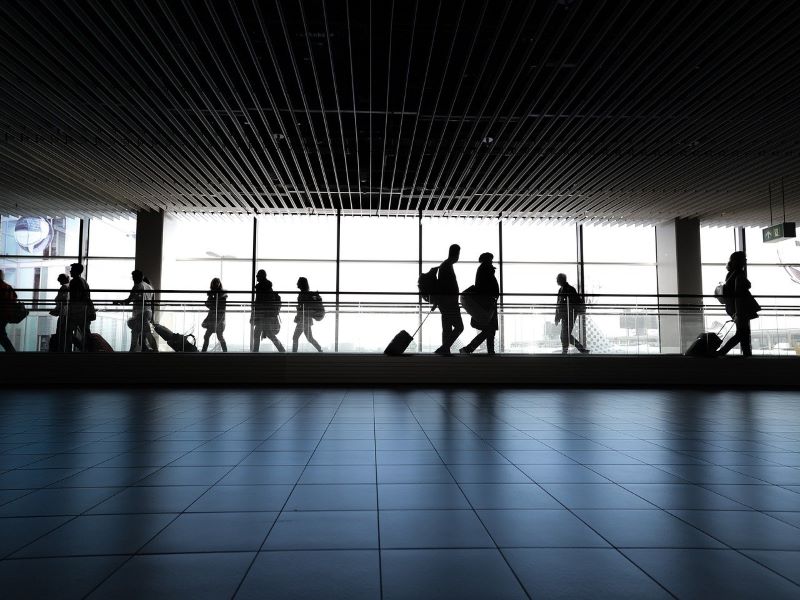 International Travel | WHO Guidelines
International Travel | WHO Guidelines WHO issues international travel guidelines, warns against blanket ban
Geneva: The World Health Organization (WHO) has warned countries on Tuesday against imposing a complete travel ban over the new COVID-19 variant Omicron, asserting that such measures “will not prevent the international spread, and they place a heavy burden on lives and livelihoods."
The global health body has suggested "an evidence-informed and risk-based approach" with any travel measures, including possible screening or quarantine of international passengers.
WHO Director-General Tedros Adhanom Ghebreyesus said he understood the concerns about Omicron. But he added, "I am equally concerned that several member states are introducing blunt, blanket measures that are not evidence-based or effective on their own, and which will only worsen inequities."
According to WHO, instead of imposing blanket bans on travel the countries should do the following:
- Countries should continue to apply an evidence-informed and risk-based approach when implementing travel measures in accordance with the International Health Regulations (IHR), including the latest Temporary Recommendations issued by the WHO Director-General on 26 October following the 9th Emergency Committee for COVID-19
- National authorities in countries of departure, transit and arrival may apply a multi-layered risk mitigation approach to potentially delay and/or reduce the exportation or importation of the new variant.
- Such measures may include screening of passengers prior to travelling and/or upon arrival, including via the use of COVID testing or the application of quarantine to international travellers. These measures, nonetheless, need to be defined following a thorough risk assessment process.
- Blanket travel bans will not prevent the international spread, and they place a heavy burden on lives and livelihoods. In addition, they can adversely impact global health efforts during a pandemic by disincentivizing countries to report and share epidemiological and sequencing data.
- All countries should ensure that the measures are regularly reviewed and updated when new evidence becomes available on the epidemiological and clinical characteristics of Omicron or any other VOC.
- Any travel-related risk mitigation measures should be part of an overall national response strategy. For example, enhancing surveillance and sequencing efforts to better understand circulating SARS-CoV-2 variants, not only among travellers, but also within the community
- Essential international travel –including travel for emergency and humanitarian missions, travel of essential personnel, repatriations and cargo transport of essential supplies–should continue to be prioritized at all times during the COVID-19 pandemic.
- In addition, all travellers should be reminded to remain vigilant for signs and symptoms of COVID-19, to get vaccinated when it is their turn and to adhere to public health and social measures at all times and regardless of vaccination status.
- Persons who are unwell, or who have not been fully vaccinated or do not have proof of previous COVID-19 infection and are at increased risk of developing severe disease and dying, including people 60 years of age or older or those with comorbidities that present increased risk of severe COVID-19 (e.g. heart disease, cancer and diabetes) should be advised to postpone travel to areas with community transmission.
- Since the beginning of the SARS-CoV-2 outbreak, WHO has been monitoring the international travel measures implemented by countries and sharing this information with National IHR Focal Points via the Event Information Site (EIS). As of 28 November 2021, 56 countries were reportedly implementing travel measures aimed at potentially delaying the importation of the new variant. Countries should continue sharing their public health rationale and relevant scientific information for additional health measures with WHO under the provisions of Article 43 of the IHR (2005).
Support Our Journalism
We cannot do without you.. your contribution supports unbiased journalism
IBNS is not driven by any ism- not wokeism, not racism, not skewed secularism, not hyper right-wing or left liberal ideals, nor by any hardline religious beliefs or hyper nationalism. We want to serve you good old objective news, as they are. We do not judge or preach. We let people decide for themselves. We only try to present factual and well-sourced news.







